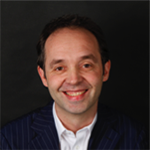About
Dr. Ruediger Kuehr is the Head of UNU-IAS Operating Unit SCYCLE, which is focusing its work and activities on sustainable production, consumption and disposal since the establishment of the Institute for the Advanced Study of Sustainability (UNU-IAS) in January 2014. Ruediger also functions as Executive Secretary of the Solving the E-Waste Problem (StEP) Initiative which aims to initiate and develops just and environmentally safe solutions to the e-waste problem through analysis, planning and pilot-projects in joint cooperation with industry, governments, academia and NGOs. From 2010 to 2011, he served as Head of UNU-ISP Operating Unit SCYCLE; from 1999 to 2009 as Head of the UNU Zero Emissions Forum (ZEF) – European Focal Point; and from 2000 to 2002 he was Secretary to the Alliance for Global Eco-Structuring (AGES) under UNEP’s Cleaner Production Network. Dr. Kuehr has authored, co-authored and co-edited several books, studies and proceedings, including “E-waste in China: A Country Study” (2013), “Japan’s Transnational Environmental Policies” (2011), “E-waste: From Recycling to Resources” (2010), “2008 Review of Directive 2002/96/EC on waste electrical and electronic equipment (WEEE)” (2007), “Computers and the Environment: Understanding and Managing their Impacts” (2004), whose research results have received acclaimed attention worldwide. He also publishes and lectures on e.g. environmental technology transfer, transnational environmental policies, strategic sustainable development and development cooperation. Dr. Kuehr is a political and social scientist by education with a Ph.D. (Dr. rer. pol.) from the University of Osnabrück (Germany) and a M.A. (Magister Artium) from the University of Münster, (Germany), and additional post-graduate studies in Tokyo (Japan) he served as Senior R & D Specialist with The Natural Step in Sweden and as a freelance policy consultant to various national governments, international organizations and companies. He was a visiting fellow to the Free University of Berlin (Germany) and the Hitotsubashi University (Japan), a Research Associate to the Japan Research Centre of the University of Osnabrück (Germany), and freelance writer to some large weekly and daily newspapers. He is a member of a number of national and international steering and expert committees and regular reviewer of a dozen of scientific journals. How did you first get involved in the green industry? Growing up in the relative freedom of my hometown, Attendorn (Germany), surrounded by the small mountains, forests and lakes of Germany’s Sauerland, I have always been closely attached to the environment, making me a pupil’s activist in environmental protection measures, but also getting involved in the environmental politics of the city council. This is now 26 years ago. Since staring my career at the United Nations in 1995, I have been always working on how to strategically realize sustainable development and therefore also been closely attached to industrial work. What interests you most about being green? Our lifestyle is far from being sustainable. And, though there are many technological solutions in place that could support sustainable development, we are not implementing those because of many reasons. Therefore, I am especially interested on what we call the soft side of sustainable development — questions regarding culture, psychology and societal environment obviously hindering the necessary progress. Certainly, the topic I am actually most interested in is how to make the production, usage and final disposal of electrical and electronic equipment more sustainable. What is your biggest “green” pet peeve? The short-sighted non-holistic thinking, shifting environmental problems to other dimensions instead of solving them. What green trend is most exciting to you or your industry? Dematerialization. Instead of purchasing the product, we purchase the service only the product provides. This has great opportunities, but also challenges.Episodes
-
The Ever-Rising E-Waste Mountain with UN StEP Initiative’s Dr. Ruediger Kuehr
The StEP Initiative was created due to a need to find solutions to reduce environmental risk and enhance development.
